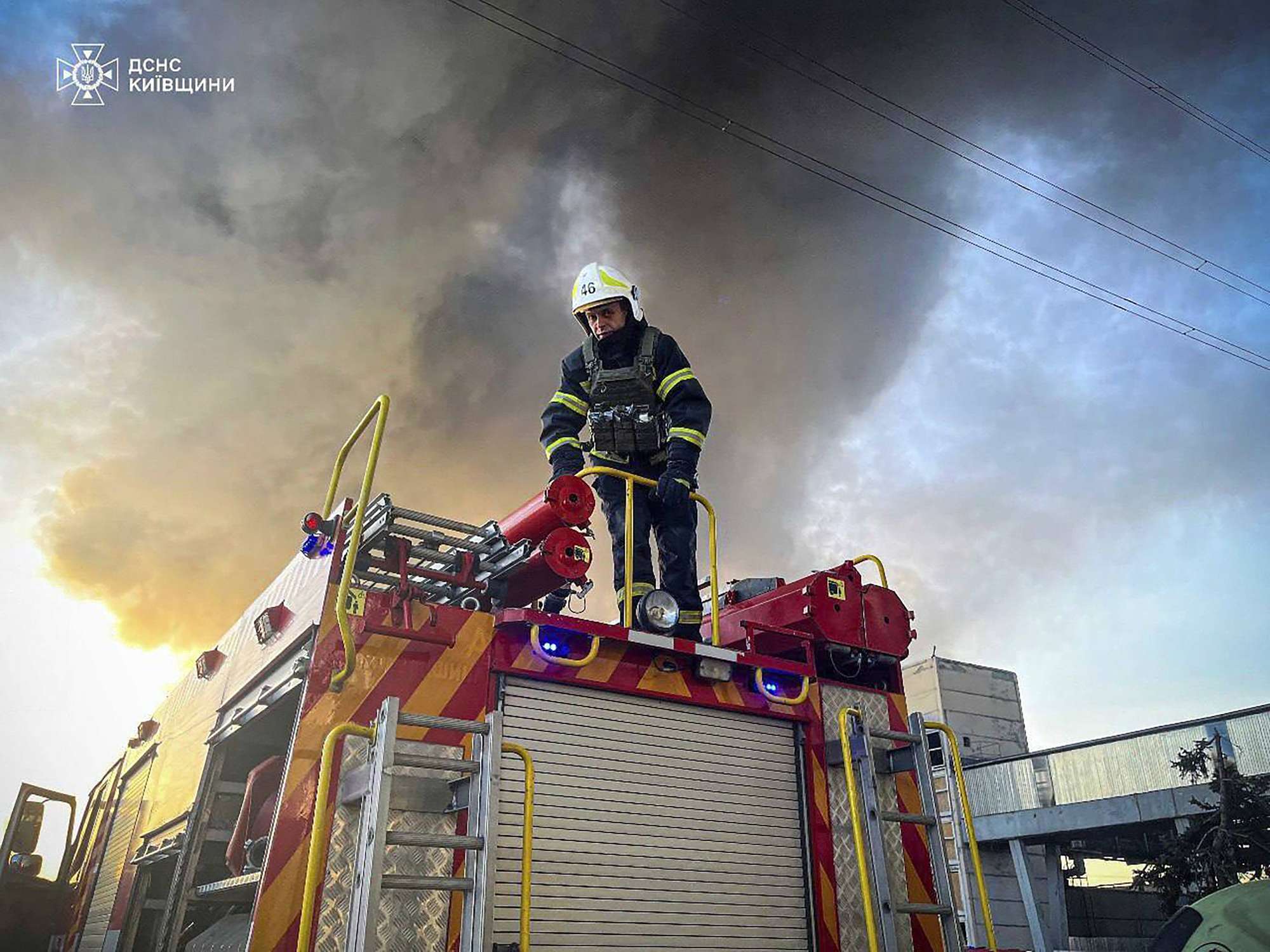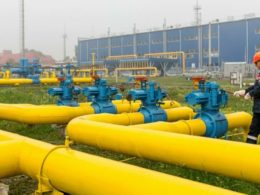In a new report, the Center for European Policy Analysis (CEPA) has revealed that Russia’s recent strikes on Ukrainian gas storage facilities are not only exacerbating Ukraine’s energy crisis but also threatening the energy security of European nations that rely on these shared reserves.
The report, written by Benjamin Schmitt and Aura Sabadus, says that the attacks, which target facilities holding gas for both Ukraine and Europe, underscore Moscow’s ongoing energy weaponization strategy and could complicate Kyiv’s plan to end its role as a transit country for Russian gas to Europe by the end of 2024.
Russia has escalated its military tactics to systematically dismantle Ukraine’s energy framework, a move that starkly intensifies from previous years’ engagements. The recent attacks have expanded in scope and devastation, now encompassing entire thermal power plants and larger energy installations, far beyond the earlier targets of electrical grid substations and transformers. These actions not only significantly disrupt Ukraine’s internal energy capabilities but also alarmingly elevate the time and costs associated with rebuilding.
One particularly alarming development is the targeting of large-scale gas storage facilities in Western Ukraine. These sites, crucial not just for Ukraine but as storage for Central and Western Europe, have seen direct military strikes, including a notable attack on a facility in Lviv Oblast on April 11. This aggressive tactic by Russia underscores the Kremlin’s use of energy resources as a geopolitical weapon, impacting both Ukraine’s internal stability and the broader European energy security.
As the end of 2024 approaches, so does the expiration of the critical gas transit agreement between Naftogaz and Gazprom, signed in 2020. This agreement has allowed Russian gas to transit through Ukraine to Europe. With the current contract set to expire in December, Ukraine faces the decision of whether to sever its long-standing role as a transit route for Russian gas to Europe—a move supported by Ukrainian energy minister German Galushchenko, who stated that Ukraine plans no renewal or extension of the current agreement.
The potential cessation of this agreement poses not only technical challenges, given the ongoing military strikes that could target key pipelines, but also political pressure from some European states that have historically relied on this route for their energy supplies. Despite the drop in Russia’s share of EU gas imports, the economic and political ramifications remain significant, especially as Europe continues to navigate its energy transition.
CEPA researchers predict that some European states will exert pressure on Kyiv to maintain “business as usual” with Moscow. Despite Russia’s share of EU gas imports dropping from 33% to less than 10% between late 2021 and late 2023, the cost of these gas supplies has almost remained the same due to increasing prices.
In response to Russia’s manipulative energy strategies, which have included significant reductions in gas supplies to Europe under dubious justifications, the EU has pledged to phase out Russian gas imports by 2027. Additionally, more than a dozen large European gas buyers have initiated lawsuits against Gazprom for breach of contract. However, the economic incentives of cheap Russian gas continue to tempt some countries within the EU, highlighting the complex dynamics at play as Europe seeks to redefine its energy sources and security.
The situation calls for a robust response from Ukraine’s Western allies to prevent Russia from leveraging Ukraine’s gas transit system to regain its market share in the EU. This involves not only political support but also the strategic implementation of sanctions to block any attempts by Russia to bypass traditional routes through potential new channels like a Turkish gas hub.
As Ukraine and its allies confront these challenges, the cessation of the gas transit agreement with Russia presents both an opportunity and a necessity for Ukraine to redefine its energy strategy in the face of ongoing hostilities.







